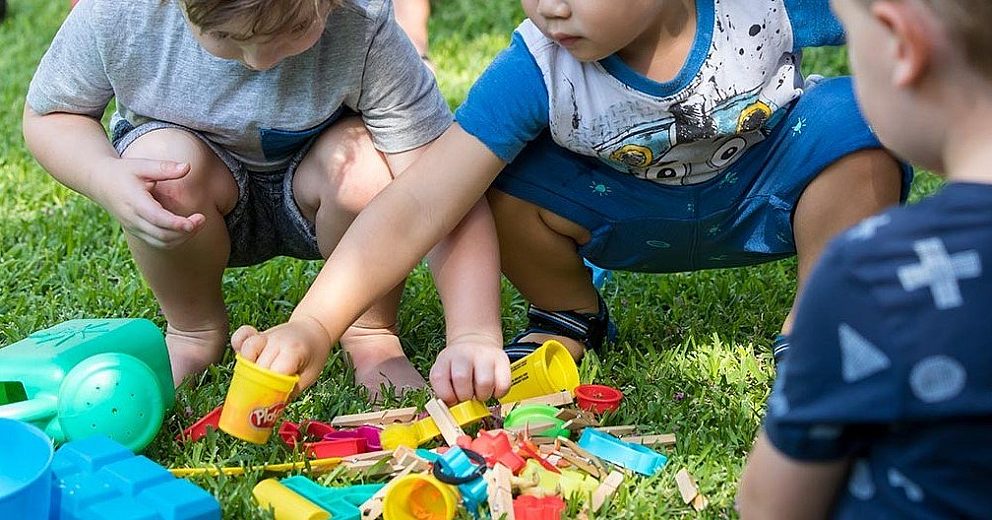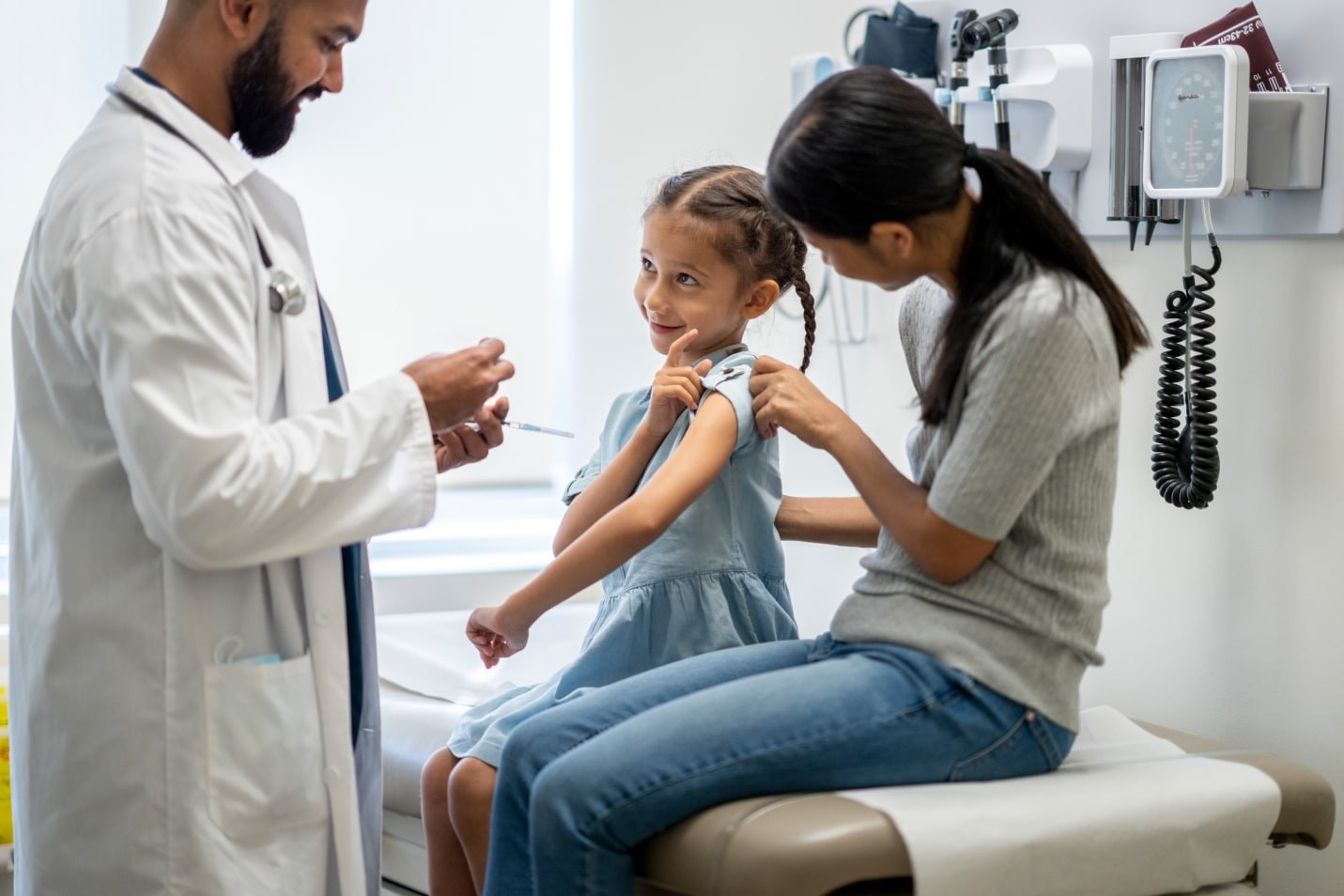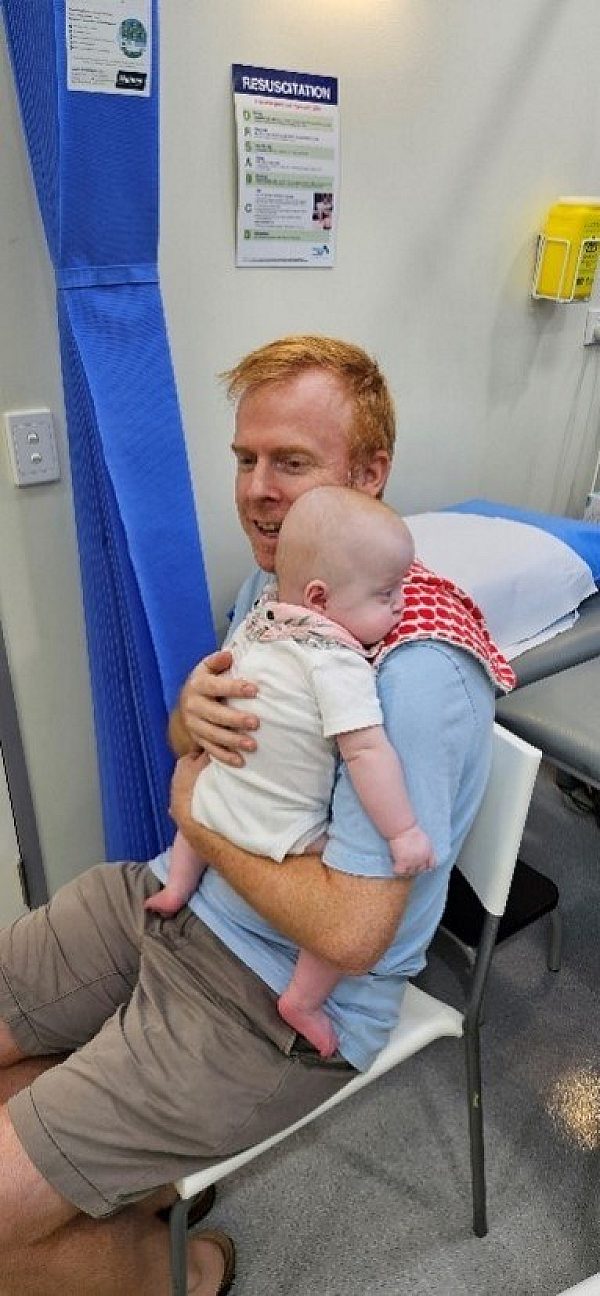
Workshop builds momentum for collaborative child development initiative
Dec 02, 2025
June 07, 2024

Free flu vaccinations are now available to all Queenslanders over 6 months of age. Doctors don’t just recommend vaccination for their patients – they vaccinate themselves and their families. Brisbane North PHN General Practice Liaison Officer (GPLO) and contributing clinical editor Dr James Collins shares his experience vaccinating his daughter for the first time.

Influenza has already been circulating in the community – but peak flu season, typically July to August, is only just now approaching. Acting now to minimise your risk of flu and other respiratory illness is critical as cases are expected to rise dramatically over the coming weeks across the North Brisbane and Moreton Bay region.
Flu vaccine can take up to two weeks to become effective – so the time to get you and your family vaccinated is now.
Influenza (the flu) is caused by different strains of influenza virus that can mutate each year – as the virus changes, we need annual (seasonal) vaccination to ensure it is as effective as possible.
It’s important to understand that influenza is different to a common cold, COVID-19 and other infections (like parainfluenza and mycoplasma) that are also circulating our community and on the rise at present. People with influenza can experience fevers, muscle aches, headache, cough, fatigue and nausea.
Pictured: Dr Collins’ daughter being vaccinated for influenza at her GP.
Flu vaccination is even more important for vulnerable groups who are more likely to become more unwell or hospitalised if they become infected, including:
Brisbane North PHN, with the endorsement of the infection control and immunisation expertise of Metro North Health’s Public Health Unit and the Australian Technical Advisory Group on Immunisation (ATAGI), recommend all people aged 6 months and over* receive an annual influenza vaccine.
This year the Queensland Government is providing influenza vaccination free for all Queenslanders aged over 6 months of age. You can access a free flu shot through your regular GP or pharmacy.
Brisbane North PHN GPLO Dr James Collins recently took his 6-month-old daughter for her first flu vaccination – he did this as soon as he could to ensure she was protected.
“It’s so important that our children get vaccinated. They are one of the most vulnerable groups to the flu in our community. I often hear ‘Oh, it’s just the flu,’ but it can be very serious for young children with some needing to be admitted to hospital or even intensive care. The whole of my family has been vaccinated from children to grandparents to protect us all.”
Data shows that in 2023, of all age groups, children aged 5 to 9 years old had the highest rates of influenza infection, followed by those aged 0 to 4 years old (AISR, 2023). Children under 16 years old comprised 72 per cent of hospital admissions related to influenza in 2023.
This high rate of infection can be associated with contact with other children in day care and at school while their immunity is building. Children, even those who are usually well, can get unpredictably very sick from influenza, and then spread it to other vulnerable groups like their grandparents.
Most importantly, the 2023 data showed that those who received the flu vaccination were 40 to 60 per cent less likely to get influenza or severe influenza compared to unvaccinated people, but also that the effectiveness against needing to present to a GP or hospital with the flu was estimated between 64 and 68 per cent (AISR, 2023).
The flu vaccine works very well and is very safe.
Influenza vaccines cannot give a person influenza because they do not contain a live virus. The immune response to the vaccine may result in side effects similar to early influenza symptoms but only last for one to two days, and are much milder than the symptoms of actual influenza.
Sometimes people are infected with influenza just prior to receiving the vaccine or after they have received it, but before it has had time to work (up to two weeks). This can lead to the mistaken assumption that the influenza vaccine has caused the infection. Other viruses can also be mistaken for influenza.
If you have a question about flu vaccination, the National Centre for Immunisation research and Surveillance (NCIRS) have answered them online via their online FAQs. The Conversation have opened up an important dialogue about vaccine hesitancy and improving population coverage rates.
We encourage parents and consumers to access further evidence-based information from trusted sources below:
It is always important to practice good hygiene and infection control – this means covering your coughs and sneezes, washing your hands and staying away from others if unwell to prevent further spread.
Children should stay away from daycare, school and other at-risk groups when they are unwell. It can be distressing for parents when a child becomes unwell and needs to stay home, or present to hospital. Timely flu vaccination may prevent your child from catching and spreading flu virus, and reduce how unwell they are or the duration of illness.
* Without contraindications.
Article reference: Australian Influenza Surveillance Report – 2023 End of Season Summary (AISR, 2023).

We acknowledge the Traditional Custodians within our region: the Jagera, Turrbal, Gubbi Gubbi, Waka Waka and the Ningy Ningy peoples of where we meet, work and learn. Brisbane North PHN is committed to reconciliation. Our vision for reconciliation is where the stories of our First Nations’ people are heard and shared, and networks are formed.